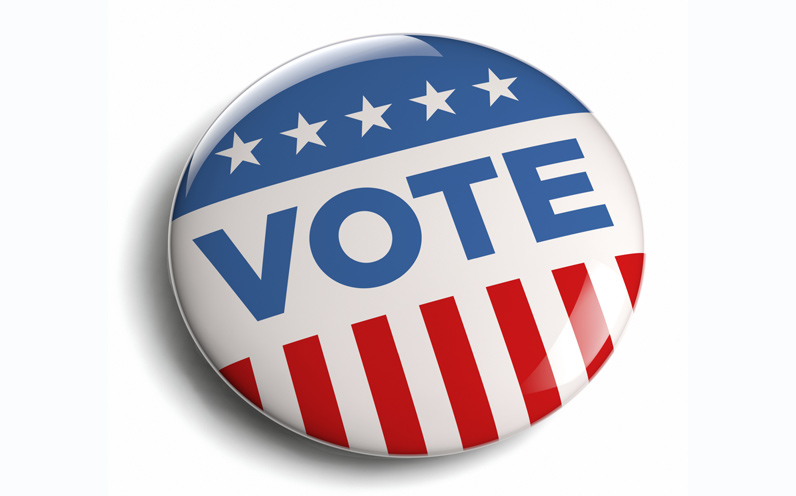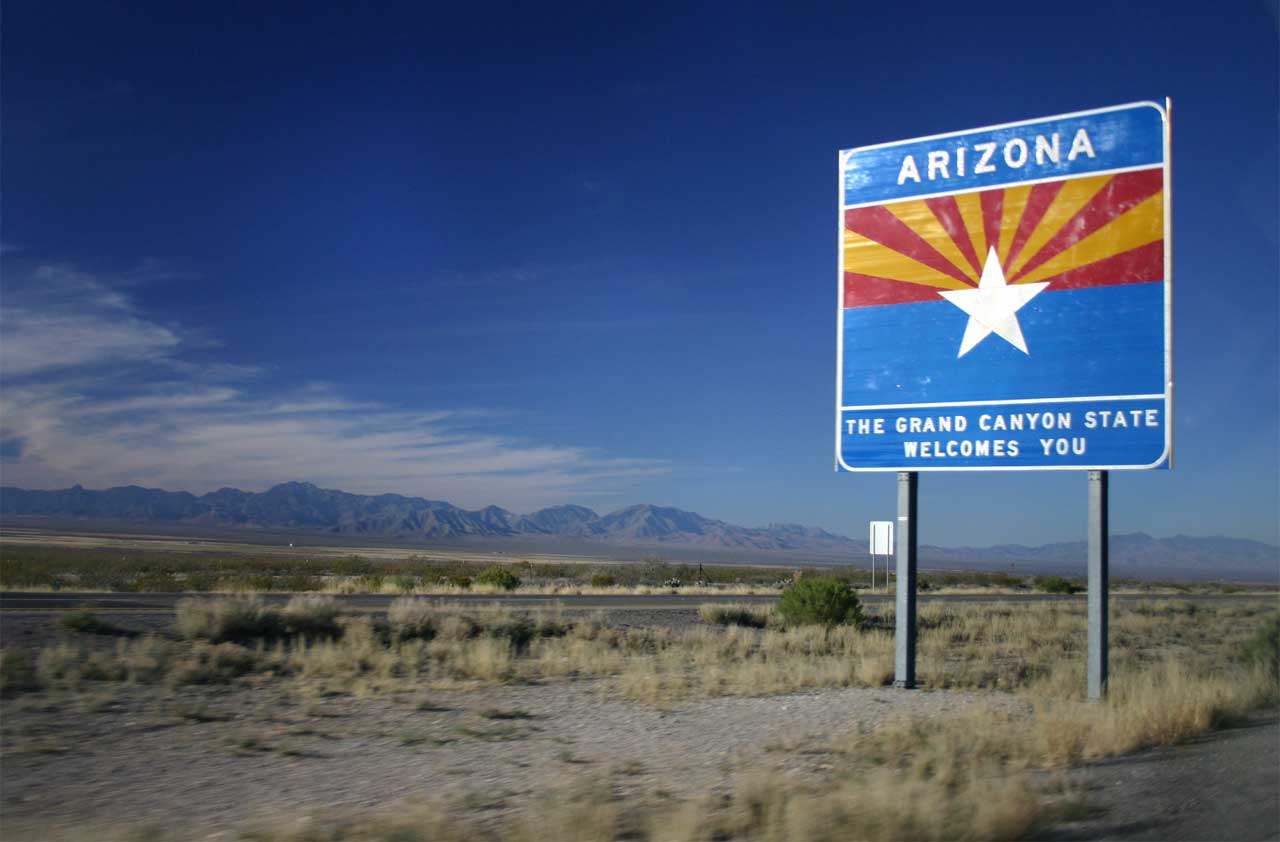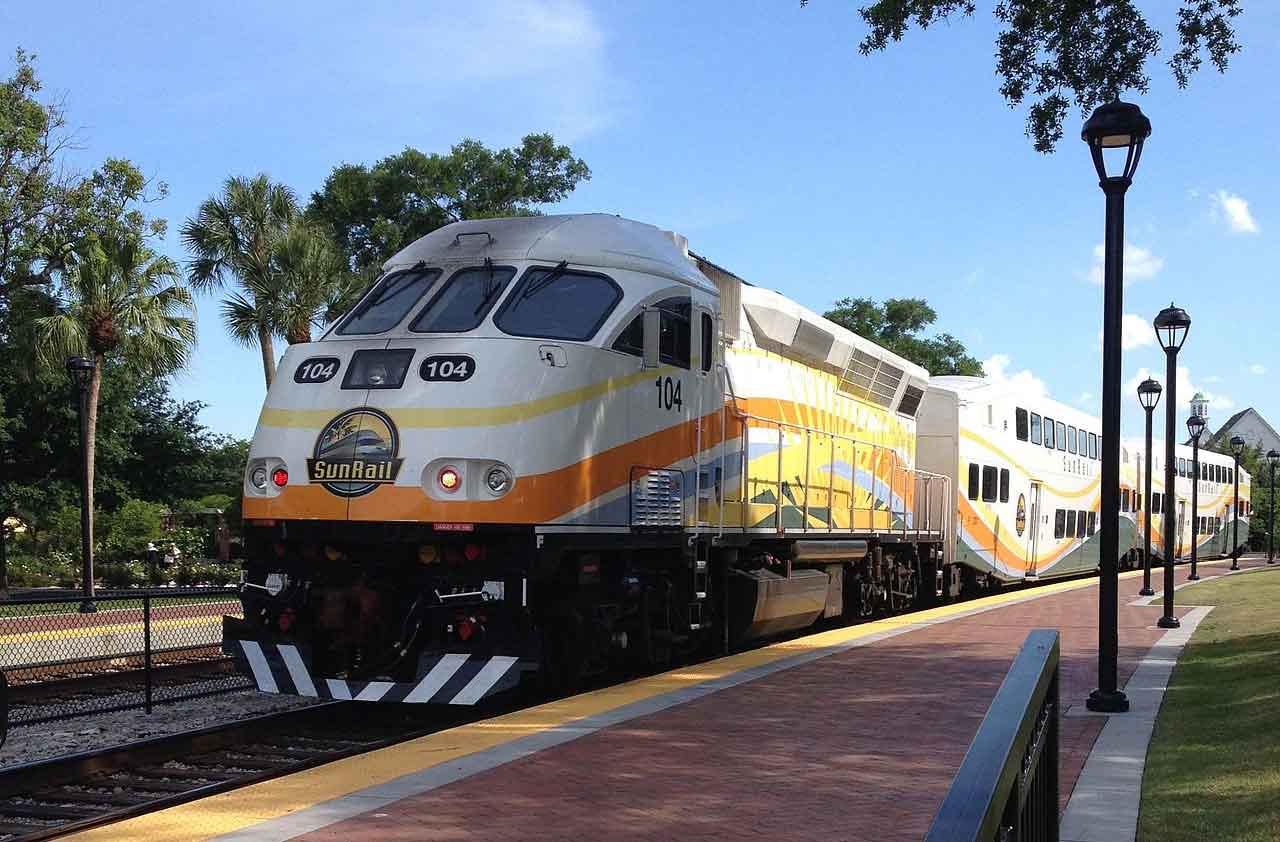Election Day 2018: 18 States With Tax Proposals on the Ballot
On November 6, voters in these states will have their say on a wide variety of proposed tax law changes.


Profit and prosper with the best of Kiplinger's advice on investing, taxes, retirement, personal finance and much more. Delivered daily. Enter your email in the box and click Sign Me Up.
You are now subscribed
Your newsletter sign-up was successful
Want to add more newsletters?

Delivered daily
Kiplinger Today
Profit and prosper with the best of Kiplinger's advice on investing, taxes, retirement, personal finance and much more delivered daily. Smart money moves start here.

Sent five days a week
Kiplinger A Step Ahead
Get practical help to make better financial decisions in your everyday life, from spending to savings on top deals.

Delivered daily
Kiplinger Closing Bell
Get today's biggest financial and investing headlines delivered to your inbox every day the U.S. stock market is open.

Sent twice a week
Kiplinger Adviser Intel
Financial pros across the country share best practices and fresh tactics to preserve and grow your wealth.

Delivered weekly
Kiplinger Tax Tips
Trim your federal and state tax bills with practical tax-planning and tax-cutting strategies.

Sent twice a week
Kiplinger Retirement Tips
Your twice-a-week guide to planning and enjoying a financially secure and richly rewarding retirement

Sent bimonthly.
Kiplinger Adviser Angle
Insights for advisers, wealth managers and other financial professionals.

Sent twice a week
Kiplinger Investing Weekly
Your twice-a-week roundup of promising stocks, funds, companies and industries you should consider, ones you should avoid, and why.

Sent weekly for six weeks
Kiplinger Invest for Retirement
Your step-by-step six-part series on how to invest for retirement, from devising a successful strategy to exactly which investments to choose.
Note: We have updated this slide show with results. See the top of each state to learn whether the measures were approved or rejected.
Ballot initiatives are one of the purest forms of democracy. Citizens vote directly on matters important to them, bypassing the normal (and often messy) lawmaking process.
On November 6, voters in 18 states will have their say on a wide variety of proposed tax law changes. Will Colorado ditch its flat income tax rate? Do Washington voters want a carbon tax? Will feminine hygiene products be taxed in Nevada? A resident’s overall state tax bill could go up or down by hundreds, maybe even thousands, of dollars each year depending on how voters respond to these questions.
If your state isn’t holding a tax referendum this year, you should still pay attention to these proposals. You may see similar tax measures on your next ballot because states (especially neighboring ones) often mimic successful tax policies. But remember, just because voters approve something doesn’t mean it’s going to happen. Sometimes that’s because the measure is simply meant to be advisory; sometimes it’s because state legislators or executives don't agree.
The states with statewide, tax-related ballot measures are listed here alphabetically. Take a look.

Arizona
- Proposition 126: Prevents new taxes on services APPROVED
- Go to Arizona’s full state tax profile
Arizona has one state tax-related question on the general election ballot this year. If approved, Proposition 126 will stop state and local governments from enacting any new, or increasing any existing, sales taxes on services. Many states are trying to expand their tax revenues by taxing services; this proposition would prevent this in Arizona. Of course, the measure would also make it more difficult for the state to raise taxes, if necessary, to generate funding for critical government projects. As things now stand, Arizona lets localities add substantial local sales taxes on top of the state's 5.6% levy. Some areas have double-digit combined sales taxes, and others tax groceries.
The long list of services that could potentially be taxed includes accounting, car repair, child care, dental work, dog grooming, dry cleaning, fitness training, funerals, haircuts, house cleaning, lawn care, martial arts training, medical care, legal representation, payroll processing, pest extermination, tanning, tax preparation, veterinary care, and window washing (among others).
Taxes on services in effect before 2018 would not be affected (e.g., on certain contractors and transportation services).

California
- Proposition 5: Removes restrictions on property tax transfers REJECTED
- Proposition 6: Repeals fuel tax increase and vehicle taxes REJECTED
- Go to California’s full state tax profile
In the Golden State, voters will see two tax-related measures on the November 6 ballot.
Proposition 5 would make it easier for California homeowners who are over 55 years old or severely disabled to buy a new home without paying higher property taxes. Under current law, they’re allowed a one-time transfer of their home’s tax value to a new home if the new property is of equal or lesser value and in the same county.
Proposition 6 would repeal the state’s fuel tax increases and vehicle fees enacted in 2017. Last November, the excise tax on gasoline was increased by 12 cents per gallon, the excise tax on diesel fuel was increased by 20 cents per gallon, and the sales tax on diesel fuel was increased by an additional 4%. In addition, a vehicle tax of $25 to $175 (based on the vehicle’s value) and a $100 fee on zero-emission vehicles were imposed. Revenue from the new taxes and fees is used for road improvement and maintenance.
If the ballot measure is approved, the tax value could be transferred to a more expensive home anywhere in the state, with an adjustment based on the old and new properties’ selling price. Plus, eligible homeowners could transfer their home’s tax value an unlimited number of times.
The measure would also require voter approval for any new or increased taxes on fuel or motor vehicles. This, of course, would make it harder to raise these taxes in the future.
Missouri and Utah also have gas or fuel tax questions on their ballots this year.

Colorado
- Amendment 73: Increases income taxes; reduces school district taxes REJECTED
- Proposition 110: Increases sales tax REJECTED
- Go to Colorado’s full state tax profile
Big changes to Colorado’s income, school district, and sales tax rates are on the line with the state’s two tax-related ballot initiatives.
First, Amendment 73 would replace the state’s flat 4.63% personal income tax rate with graduated rates ranging from 4.63% to 8.25%. Taxes would increase for anyone with taxable income above $150,000. If the measure passes, the tax rates starting in 2019 will be:
- 4.63% for taxable income up to $150,000,
- 5% for taxable income between $150,001 and $200,000,
- 6% for taxable income between $200,001 and $300,000,
- 7% for taxable income between $300,001 and $500,000, and
- 8.25% for taxable income above $500,000.
The corporate income tax rate would also increase from 4.63% to 6% (applies to all corporations).
Additional revenue from the income tax increases would be used for school funding.
School district property tax rates would be reduced if the measure is approved by voters. The tax rate for nonresidential property would be lowered from 29% to 24%, and the rate for residential property would go from 7.2% to 7%. (However, because the residential rate is currently adjusted periodically and is projected to be 6.1% for 2019 and 2020, this could effectively result in a tax increase on residential properties.)
On the sales tax side, Proposition 110 would increase the statewide sales tax rate from 2.9% to 3.52%. The tax increase would apply for 20 years. Revenue from the increase would be used for state and local transportation projects.

Florida
- Amendment 1: Expands property tax exemption REJECTED
- Amendment 2: Limits property tax assessment increases APPROVED
- Amendment 5: Requires “supermajority” for new taxes APPROVED
- Go to Florida’s full state tax profile
If approved, Amendment 1 will expand the “homestead” property tax exemption to homes valued between $100,000 and $125,000 (does not apply to school district taxes). Currently, the exemption only applies to the first $25,000 of a home’s assessed value (for all property taxes) and to assessed values between $50,000 and $75,000 (only for non-school taxes).
For example, let’s say you own a home in Florida with an assessed value of $200,000. Under current rules, the first $25,000 of your home’s value is exempt from all property tax, the next $25,000 of value is taxable, the third $25,000 of value is exempt from non-school taxes, and the remaining $125,000 of value is taxable. So $25,000 of your home’s assessed value is fully exempt, and $50,000 of its value is exempt from non-school taxes.
If Amendment 1 is approved, the first $25,000 of your home’s value would be exempt from all property tax, the next $25,000 of value would be taxable, the third $25,000 of value would be exempt from non-school taxes, the next $25,000 of value would be taxable, the next $25,000 of value would be exempt from non-school taxes, and the remaining $75,000 of value would be taxable. In all, $25,000 of your home’s assessed value would be fully exempt, and $75,000 of its value would be exempt from non-school taxes.
Amendment 2 would make the 10% limit on property tax assessment increases permanent. The limit, which is set to expire in 2019, does not apply to school district taxes.
Finally, if Amendment 5 is approved, a “supermajority” (2/3 vote) in each house would be required to pass legislation imposing new, or raising existing, state taxes or fees. It would only apply to state taxes, not to local taxes. While supermajority requirements help keep taxes down, they also tie the state’s hands if additional revenue is needed for essential government services.
Oregonians will also see a supermajority question on their ballot.

Georgia
- Amendment 5: Allows school district sales tax referenda APPROVED
- Referendum A: Creates property tax exemption in certain cities APPROVED
- Referendum B: Clarifies property tax exemption for housing for the mentally disabled APPROVED
- Go to Georgia’s full state tax profile
One sales tax and two property tax measures will appear on the November 6 ballot in the Peach State.
Amendment 5 would authorize independent school districts in a county, or a combination of school districts, to call for a referendum to impose a five-year, 1% sales tax for education. The school district or combination of districts must have a majority of the county’s students. The tax revenue would be distributed according to either an agreement between the county and school district(s) or the percentage of county students in each school district.
Referendum B clarifies that the existing property tax exemption for nonprofit homes for the mentally disabled applies even if financing for construction or renovation of a home is provided by a business. This preserves the exemption in cases where a for-profit business is a member of the nonprofit primarily to help finance home-related projects.
Right now, sales tax referenda can only be called by county-level school boards, or by county-level school boards together with independent school districts. In other words, if the county school board doesn’t want a referendum, then it isn’t happening. If approved, the ballot measure would give larger independent school districts the power to tax without the county’s permission.
On the property tax side, Referendum A would essentially cap annual municipal property tax increases in certain cities (such as Atlanta) beginning in 2019. It would do this by creating a new municipal property tax exemption equal to a home’s current-year assessed value minus its adjusted base-year value. Because increases to the base-year value would be limited to 2.6% each year (plus any change in home value), any increase in the home’s assessed value above that amount would be exempt.
For example, let’s say you own a home in Atlanta with a 2018 base value of $500,000. In 2019, the home’s assessed value may jump to $800,000. For 2019, the maximum adjusted base value would be $630,000 ($500,000 + 26%). Therefore, $170,000 of your home’s 2019 assessed value would be exempt from Atlanta’s city property tax.
However, the exemption would only apply if you live in a city that:
- is located in more than one county,
- imposes a sales tax to fund a local public transportation system, and
- has an independent school system within its boundaries.
School district taxes would not be affected.

Hawaii
- Amendment: Allows property tax surcharge on investment property (Invalid)
- Go to Hawaii’s full state tax profile
The ballot in Hawaii will include a question about allowing a property tax surcharge on investment real property to help fund public education. However, this question was ruled invalid by the state’s highest court, which said the ballot language was unclear and misleading. As a result, any votes for or against the measure will not be counted.

Louisiana
- Amendment 5: Extends certain property tax breaks to trusts APPROVED
- Amendment 6: Phases in property tax increases APPROVED
- Go to Louisiana’s full state tax profile
The Pelican State’s general election ballot will include two questions about property taxes.
Amendment 5 asks voters if the following property tax breaks should be extended to property in trust:
- special assessment levels for homes owned by the elderly,
- the disabled veteran exemption, and
- the exemption for the surviving spouse of a person who died while performing his or her duties as a first responder, active duty member of the military, law enforcement officer, or fire protection officer.
Amendment 6 asks voters if they want certain residential property tax increases to be phased in equally over a four-year period (25% each year). The phase-in provision would only apply if:
- the increase is triggered by a reappraisal, and
- the property’s reappraised value goes up 50% or more.
A new reappraisal would not be allowed until the phase-in period is complete. Also, the phase-in would stop if the owner sells the property, and a new appraisal would be done.
For example, imagine home prices are rising quickly and your home in Louisiana is reappraised for property tax purposes. The old value was $200,000, but it’s now valued at $360,000 ($160,000 more). That’s an 80% increase, so you would qualify for the phase-in. Instead of taxing you right away based on the full $360,000 value, in the first year the state would only tax $240,000 ($200,000 + 25% of the increase) of your home’s value. The year after that, you’d only be taxed on $280,000. In the third year, the tax would be on $320,000. Then, in the fourth year, you’d be taxed on the full $360,000 value.

Maine
- Question 1: Imposes new income and payroll taxes REJECTED
- Go to Maine’s full state tax profile
With Question 1, voters in Maine will get a chance to approve or reject new payroll and income taxes on anyone with Maine adjusted gross income of $128,400 or more. The income threshold is for 2018, but it would be adjusted annually for inflation.
Revenue from the new taxes would be used to provide home-based assistance to senior citizens and disabled persons — the first program of its kind in the U.S.
There would actually be two new taxes on high earners in Maine if the measure is passed. First, both employers and employees would each pay a 1.9% payroll tax on wages exceeding the AGI threshold (for a combined tax of 3.8%). The employee’s tax would be withheld from wages and reported on his or her W-2 form.
There would also be a separate 3.8% tax on nonwage income, such as dividends or rental income, over the AGI threshold. To avoid double taxation, the tax on nonwage income would be reduced by the total amount of the payroll tax paid by the taxpayer and his or her employer.
For example, let’s say you have Maine AGI of $300,000 in 2018, including $200,000 in wages and another $100,000 in nonwage income. You and your employer would each pay $1,360 in taxes for the wage income (($200,000 – $128,400) × 1.9%), for a total of $2,720.80. You would also pay an additional $3,800 in taxes for your nonwage income (($300,000 – $128,400) × 3.8%; minus $2,720).

Michigan
- Proposal 1: Legalizes and imposes sales tax on recreational marijuana APPROVED
- Go to Michigan’s full state tax profile
Voters in the Great Lakes State can get high on more than just life if they approve Question 1 on the November 6 ballot. This measure would legalize the recreational use of marijuana in Michigan.
It would also impose a 10% tax on retail sales of marijuana and marijuana-based edibles. Tax dollars would be used for implementation costs, clinical trials, schools, roads, and municipalities where marijuana businesses are located.
Missouri and Utah also have tax questions on the ballot related to the legalization of marijuana.

Missouri
- Amendment 2: Legalizes and imposes sales tax on medical marijuana APPROVED
- Amendment 3: Legalizes and imposes sales and cultivation taxes on medical marijuana REJECTED
- Proposition C: Legalizes and imposes sales tax on medical marijuana REJECTED
- Proposition D: Increases fuel taxes; creates income tax deduction for Olympic prizes REJECTED
- Go to Missouri’s full state tax profile
The first three measures would impose a sales tax on medical marijuana sales, but each suggests a different tax rate and different state beneficiaries of those tax dollars:
- Amendment 2 would impose a 4% sales tax on medical marijuana. Revenue from the tax would be used for veterans’ services.
- Amendment 3 would impose a 15% sales tax on medical marijuana. It would also impose a tax on the wholesale sale of marijuana flowers ($9.25 per dry-weight ounce) and leaves ($2.75 per dry-weight ounce) by licensed cultivation facilities. Revenue from the taxes would be used for medical research.
- Proposition C would impose a 2% sales tax on medical marijuana. Revenue from the tax would be used for veterans' services, drug treatment, early childhood education, and public safety.
Voters in Michigan and Utah will also see questions about the taxation of marijuana on their ballots.
In addition to the marijuana-related questions, Proposition D will ask Missouri voters to approve a fuel tax increase and an income tax deduction for Olympic prizes. If passed, the current 17-cents-per-gallon tax on motor fuel (e.g., gasoline, diesel fuel, kerosene, and blended fuel) will increase to:
- 19.5 cents per gallon beginning July 1, 2019,
- 22 cents per gallon beginning July 1, 2020,
- 24.5 cents per gallon beginning July 1, 2021, and
- 27 cents per gallon beginning July 1, 2022.
The tax on alternative motor vehicle fuels (e.g., compressed natural gas, liquid natural gas, and propane gas) is already set to incrementally increase from 5 cents to 17 cents per gasoline or diesel gallon equivalent from now until 2025. However, the ballot measure would further increase the tax to 27 cents per gallon equivalent beginning in 2026.
Voters in California and Utah will also see gas or fuel tax-related questions on their ballots.
Finally, the income tax deduction would be for the value of any prize or award won in the Olympics, Paralympics or Special Olympics. (Olympic prizes are one of our 10 Surprising Things That Are Taxable.)

Montana
- Legislative Referendum 128: Renews property tax supporting public colleges and universities APPROVED
- Initiative 185: Increases and expands tobacco taxes REJECTED
- Go to Montana’s full state tax profile
Montana voters will see two tax-related questions on their November 6 ballot — one extending a property tax and one raising tobacco taxes.
The property tax measure – Legislative Referendum 128 – would continue an existing tax that supports Montana's public colleges and universities. The tax is equal to $6 for every $1,000 of a property’s value. Without voter approval, the tax will expire at the end of 2018. If passed, the tax will be extended for an additional 10 years, through 2028.
Initiative 185 would raise various existing tobacco taxes and impose new taxes on vaping products to fund expanded Medicaid services, veterans’ services, smoking prevention and cessation programs, long-term-care services for seniors and people with disabilities, and other health-related programs.
Taxes on cigarettes would increase from $1.70 to $3.70 per pack if the measure is approved. Taxes on moist snuff would increase from 85 cents per ounce to the greater of 83% of the wholesale price or $3.70 per 1.2 ounces. The tax on all other tobacco products would increase from 50% to 83% of the wholesale price. Plus, the new 83% rate would apply to e-cigarettes and other vaping products.
Voters in South Dakota will also see a tobacco tax measure on their ballot.

Nevada
- Question 2: Exempts feminine hygiene products from sales tax APPROVED
- Question 4: Exempts medical equipment from sales tax APPROVED
- Go to Nevada’s full state tax profile
Two sales tax exemption questions will appear on the Nevada ballot on November 6. Both would narrow the state’s tax base (while many states are trying to expand theirs).
Question 2 asks voters if they want feminine hygiene products to be exempt from tax. This would include sanitary napkins and tampons.
Question 4 would also provide a new sales-tax exemption – for medical equipment. Specifically, the exemption would apply to “durable medical equipment, oxygen delivery equipment, and mobility enhancing equipment” (although these terms are not yet defined). Use of the equipment would have to be prescribed by a licensed health care provider for the exemption to apply.
Nevada currently taxes feminine hygiene products. If the measure passes, it will become the 10th state to exempt these products from sales tax.
Nevada already has sales tax exemptions for prosthetic devices, casts, braces, ostomy supplies, dialysis products, and medicines.

North Carolina
- Amendment: Reduces maximum income tax rate APPROVED
- Go to North Carolina’s full state tax profile
On November 6, voters in the Tar Heel State will approve or reject a state constitutional amendment to lower the cap on income taxes. Right now, the highest personal and corporate income tax rate possible in North Carolina is 10%. However, if the amendment passes, the new limit will be 7%.
Whether or not the amendment passes, taxes won’t go down. North Carolina’s income tax rates are already below 7%. The current personal income tax rate is 5.499%, and the corporate rate is 3%.
Also, the amendment would only apply to income taxes. It wouldn’t affect sales taxes, property taxes or any other taxes.
One possible downfall to passage: The state would have a harder time raising money in tough times or to deal with an emergency. Instead, the state could be forced to cut services, raise other taxes or borrow money.

Oregon
- Measure 103: Prevents new taxes on groceries REJECTED
- Measure 104: Expands “supermajority” requirements for raising revenue REJECTED
- Go to Oregon’s full state tax profile
In Oregon, two big “antitax” measures are on the November 6 ballot. One would stop any new taxes on groceries; the other would make it harder to raise any taxes or fees.
Oregon doesn’t currently tax groceries, and Measure 103 would make sure it never does. If approved, the measure would prohibit the state or any local government from imposing any tax, fee, or other assessment on:
- any transaction for the sale, purchase, distribution, or transfer of groceries; or
- for the privilege of selling or distributing groceries.
“Groceries” is broadly defined as any raw or processed food or beverage intended for human consumption. However, alcoholic beverages, marijuana products and tobacco products could still be taxed.
The measure would also reach beyond the grocery store. No tax could be imposed on grocery items in warehouses, packaging and processing plants, restaurants or other locations regulated under certain food-safety programs. Farm stands, farmers markets and food banks are covered, too.
Oregon already requires a “supermajority” (3/5 vote) in each house to pass any legislation raising revenue. But “raising revenue” isn’t defined; Measure 104 would define it. Generally, the courts defined “raising revenue” to mean imposing a new tax or increasing an existing tax rate. Plus, “fees” don’t count.
Under Measure 104, “raising revenue” would also include modifying, eliminating or changing the eligibility for any tax exemption, credit, deduction or lower rate. Creating new fees and increasing existing fees would be included, too.
While slowing down tax increases sounds like a good idea on the surface, voters should be aware that supermajority requirements can also make it harder for the state to react in a financial crisis.

South Dakota
- Measure 25: Increases cigarette and tobacco taxes REJECTED
- Go to South Dakota’s full state tax profile
With Measure 25, voters in the Mount Rushmore State can raise revenue to help fund (and reduce tuition at) the state's four post-secondary technical institutes. To do this, the measure would increase South Dakota’s cigarette and tobacco taxes.
The cigarette tax would increase from $1.53 to $2.53 per pack of 20 cigarettes. For packs containing 25 cigarettes, the tax would jump from $1.92 to $3.17 per pack.
For other types of tobacco products, the tax would go from 35% to 55% of the wholesale price. This would affect cigars, “roll-your-own” tobacco, and chewing tobacco.
Montana will also have a tobacco tax measure on its ballot this year.

Utah
- Amendment A: Eases restrictions on military property tax exemption APPROVED
- Amendment B: Creates property tax exemption for leased government property REJECTED
- Nonbinding Opinion Question 1: Asks if fuel taxes should be raised REJECTED
- Proposition 2: Exempts medical marijuana sales from tax APPROVED
- Go to Utah’s full state tax profile
Utah has a good mix of interesting tax-related measures on its November 6 ballot. First, there’s Amendment A, which would make it easier for military families to benefit from an existing property tax exemption. As it stands now, real property owned by an active-duty member of the military, or his or her spouse, is exempt from tax if he or she serves out of state for at least 200 days in a calendar year or 200 consecutive days. Unfortunately, the exemption doesn’t apply if, say, the person serves 199 days toward the end of one year, is able to come home in December for the holidays, and then serves another 199 days at the beginning of the next year.
If approved, Amendment A would fix this problem by allowing the exemption if the military member serves at least 200 days in a continuous 365-day period.
Next up is Amendment B, which also concerns a property tax exemption. But this measure creates a new one. Property owned by the state and local governments is already exempt from tax. This measure would also exempt real property leased by the state or a local government from private owners. It would not exempt personal property that is leased.
Nonbinding Opinion Question 1 simply asks voters if the state should increase motor and special fuel taxes by 10 cents per gallon to provide additional funding for public education and local roads. The current rate for most of these fuel taxes is 29.4 cents per gallon, but the rate is scheduled to rise to 30 cents per gallon in 2019. As the name suggests (“nonbinding opinion”), the results of this ballot measure will not directly affect the tax rate; the public is just providing its input.
Finally, Proposition 2 concerns the taxation of medical marijuana. Some use of marijuana for medical purposes is already allowed in Utah. However, if the measure is approved, the state would actually exempt the sale of marijuana from sales tax. Instead, licensing and registration fees would be collected from marijuana facilities to cover implementation costs.

Virginia
- Question 1: Allows property tax exemption for flood prevention improvements APPROVED
- Question 2: Eases restrictions on disabled veteran property tax exemption APPROVED
- Go to Virginia’s full state tax profile
Virginians will see two property tax questions on their ballot for the November 6 general election.
It has been a wet year, and parts of the Old Dominion have seen more than their fair share of flooding. Question 1 will help property owners who are trying to do something about frequent flooding on their land. If approved, the measure would pave the way for new property tax exemptions for real property subject to recurrent flooding, if the owner makes improvements to address the problem (e.g., installing flood walls, riprap, drainage systems, etc.). The tax exemptions won’t automatically be created if the measure is approved, but it would authorize the state legislature to allow local governments to create an exemption. Both the state and the localities would be able to place restrictions and conditions on the exemption.
Question 2 takes aim at a current restriction on the property tax exemption for a disabled veteran’s surviving spouse. Virginia already authorizes an exemption for the principal residence of a disabled veteran. If the veteran dies, the exemption carries over to the surviving spouse, as long as the spouse continues to occupy the property as his or her principal place of residence.
If approved, this measure will allow a surviving spouse to keep the exemption even if he or she moves to a different home.

Washington
- Initiative 1631: Imposes carbon tax REJECTED
- Initiative 1634: Prevents new taxes on groceries APPROVED
- Advisory Vote 19: Asks if oil spill tax should be extended REPEAL TAX INCREASE
- Go to Washington’s full state tax profile
Washington might have the most interesting collection of statewide referenda on its ballot this year. The Evergreen State could be the first state in the union to have a carbon tax (it seems appropriate, given the state’s nickname). Voters will also voice their opinion on whether to tax groceries, crude oil, and petroleum products.
Let’s start with Initiative 1631 – the carbon “fee” question (proponents were careful not to call it a “tax”). Washington had a similar question on the ballot in 2016; it didn’t pass. If approved, it would impose a pollution fee on large emitters of greenhouse gases. Specifically, the fee would apply to:
- fossil fuels sold or used in the state, and
- electricity generated in or imported into the state.
The fee amount would be based on the carbon content in the fossil fuels, or in the fossil fuels used to generate electricity. Beginning in 2020, the fee would be $15 per metric ton of carbon content. It would increase by $2 per metric ton each year and be adjusted annually for inflation. The $2 annual increases would stop when certain greenhouse gas reduction goals are met.
Revenue from the fee would be used for various environmentally friendly programs and projects.
Initiative 1634 would prevent local governments from imposing any new taxes or fees on groceries. This includes taxes and fees on the manufacture, distribution, sale, possession, ownership, transfer, transportation, container, use or consumption of grocery items. "Groceries" would be defined as any raw or processed food or beverage (or any ingredient in it) intended for human consumption. Alcoholic beverages, marijuana products, and tobacco are not included.
Finally, there’s Advisory Vote 19, which asks voters if they think the legislature’s expansion of oil spill response and administration taxes should be kept or repealed. Before June 2018, these taxes applied to oil transported into the state by trains and tankers, but not by pipeline. The state enacted legislation earlier this year that also taxed crude oil or petroleum products received by pipeline.
Profit and prosper with the best of Kiplinger's advice on investing, taxes, retirement, personal finance and much more. Delivered daily. Enter your email in the box and click Sign Me Up.
Rocky Mengle was a Senior Tax Editor for Kiplinger from October 2018 to January 2023 with more than 20 years of experience covering federal and state tax developments. Before coming to Kiplinger, Rocky worked for Wolters Kluwer Tax & Accounting, and Kleinrock Publishing, where he provided breaking news and guidance for CPAs, tax attorneys, and other tax professionals. He has also been quoted as an expert by USA Today, Forbes, U.S. News & World Report, Reuters, Accounting Today, and other media outlets. Rocky holds a law degree from the University of Connecticut and a B.A. in History from Salisbury University.
-
 Dow Leads in Mixed Session on Amgen Earnings: Stock Market Today
Dow Leads in Mixed Session on Amgen Earnings: Stock Market TodayThe rest of Wall Street struggled as Advanced Micro Devices earnings caused a chip-stock sell-off.
-
 How to Watch the 2026 Winter Olympics Without Overpaying
How to Watch the 2026 Winter Olympics Without OverpayingHere’s how to stream the 2026 Winter Olympics live, including low-cost viewing options, Peacock access and ways to catch your favorite athletes and events from anywhere.
-
 Here’s How to Stream the Super Bowl for Less
Here’s How to Stream the Super Bowl for LessWe'll show you the least expensive ways to stream football's biggest event.
-
 Can I Deduct My Pet On My Taxes?
Can I Deduct My Pet On My Taxes?Tax Deductions Your cat isn't a dependent, but your guard dog might be a business expense. Here are the IRS rules for pet-related tax deductions in 2026.
-
 IRS Tax Season 2026 Is Here: Big Changes to Know Before You File
IRS Tax Season 2026 Is Here: Big Changes to Know Before You FileTax Season Due to several major tax rule changes, your 2025 return might feel unfamiliar even if your income looks the same.
-
 2026 State Tax Changes to Know Now: Is Your Tax Rate Lower?
2026 State Tax Changes to Know Now: Is Your Tax Rate Lower?Tax Changes As a new year begins, taxpayers across the country are navigating a new round of state tax changes.
-
 States That Tax Social Security Benefits in 2026
States That Tax Social Security Benefits in 2026Retirement Tax Not all retirees who live in states that tax Social Security benefits have to pay state income taxes. Will your benefits be taxed?
-
 3 Major Changes to the Charitable Deduction for 2026
3 Major Changes to the Charitable Deduction for 2026Tax Breaks About 144 million Americans might qualify for the 2026 universal charity deduction, while high earners face new IRS limits. Here's what to know.
-
 Retirees in These 7 States Could Pay Less Property Taxes Next Year
Retirees in These 7 States Could Pay Less Property Taxes Next YearState Taxes Retirement property tax bills could be up to 65% cheaper for some older adults in 2026. Do you qualify?
-
 Estate Tax Quiz: Can You Pass the Test on the 40% Federal Rate?
Estate Tax Quiz: Can You Pass the Test on the 40% Federal Rate?Quiz How well do you know the new 2026 IRS rules for wealth transfer and the specific tax brackets that affect your heirs? Let's find out!
-
 5 Types of Gifts the IRS Won’t Tax: Even If They’re Big
5 Types of Gifts the IRS Won’t Tax: Even If They’re BigGift Tax Several categories of gifts don’t count toward annual gift tax limits. Here's what you need to know.

